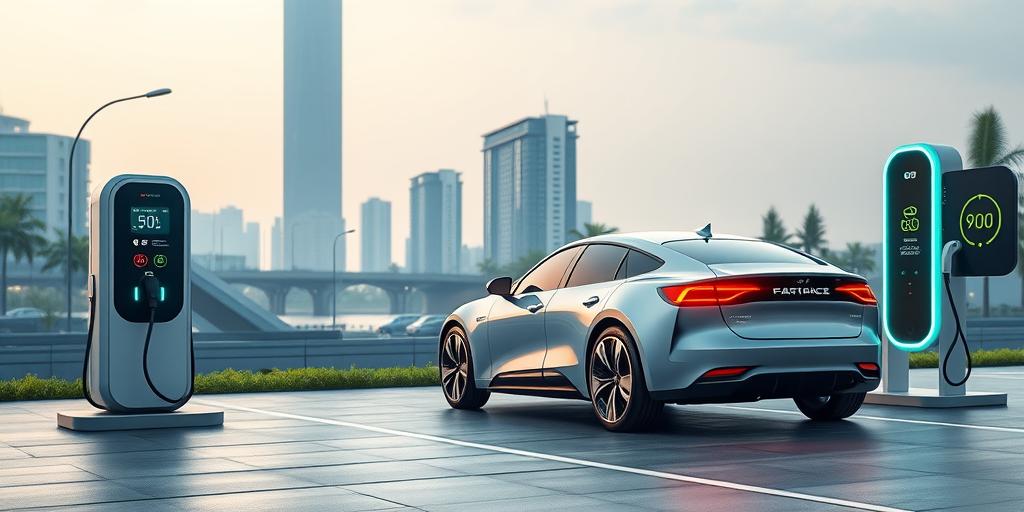Automotive Industry Transformation: EVs in India and the World
The automotive industry is undergoing a monumental shift, driven by increasing environmental concerns, technological advancements, and evolving consumer preferences. Electric vehicles (EVs) are at the forefront of this transformation, promising a cleaner, more sustainable future for transportation. This post explores the global EV landscape, with a particular focus on the burgeoning EV market in India.
Global EV Market Overview
The global EV market has experienced exponential growth in recent years. Key factors contributing to this surge include:
- Stringent Emission Regulations: Governments worldwide are implementing stricter emission standards, pushing automakers to invest in EVs.
- Technological Advancements: Improvements in battery technology have increased EV range and reduced charging times, making them more practical for consumers.
- Government Incentives: Many countries offer tax credits, subsidies, and other incentives to encourage EV adoption.
- Growing Consumer Awareness: Increasing awareness of the environmental benefits of EVs is driving consumer demand.
Major players in the global EV market include Tesla, Volkswagen, BYD, and Renault-Nissan-Mitsubishi. These companies are investing heavily in EV development and production, leading to a wider range of EV models available to consumers.
India’s EV Revolution
India’s EV market is still in its early stages, but it holds immense potential. The Indian government has set ambitious targets for EV adoption, aiming for EVs to account for 30% of new vehicle sales by 2030. Several factors are driving the growth of the EV market in India:
- Government Support: The Indian government is offering various incentives to promote EV manufacturing and adoption, including subsidies, tax breaks, and infrastructure development.
- Rising Fuel Prices: High petrol and diesel prices are making EVs a more attractive option for cost-conscious consumers.
- Air Quality Concerns: Severe air pollution in many Indian cities is raising awareness of the need for cleaner transportation.
- Increasing Investment: Both domestic and international companies are investing in EV manufacturing and infrastructure in India.
However, challenges remain in the Indian EV market:
- High Upfront Costs: EVs are currently more expensive than conventional vehicles, which can be a barrier for many consumers.
- Limited Charging Infrastructure: The availability of charging stations is still limited, particularly in smaller cities and rural areas.
- Range Anxiety: Concerns about the limited range of EVs and the lack of charging infrastructure can deter potential buyers.
- Battery Technology: Dependence on imports for battery technology creates supply chain vulnerabilities.
Key Trends and Developments
Several key trends are shaping the future of the EV market in India and globally:
- Battery Technology Advancements: Ongoing research and development efforts are focused on improving battery energy density, reducing charging times, and lowering costs.
- Charging Infrastructure Expansion: Governments and private companies are investing in expanding the charging infrastructure to support the growing EV fleet.
- Localization of Manufacturing: Automakers are increasingly focusing on localizing EV production to reduce costs and enhance competitiveness.
- Development of EV Ecosystem: Efforts are underway to develop a comprehensive EV ecosystem, including battery manufacturing, charging infrastructure, and recycling facilities.
The Road Ahead
The automotive industry is on an irreversible path towards electrification. While challenges remain, the long-term prospects for EVs are bright. Continued innovation, government support, and growing consumer awareness will drive the EV revolution forward, transforming the way we travel and creating a cleaner, more sustainable future.
